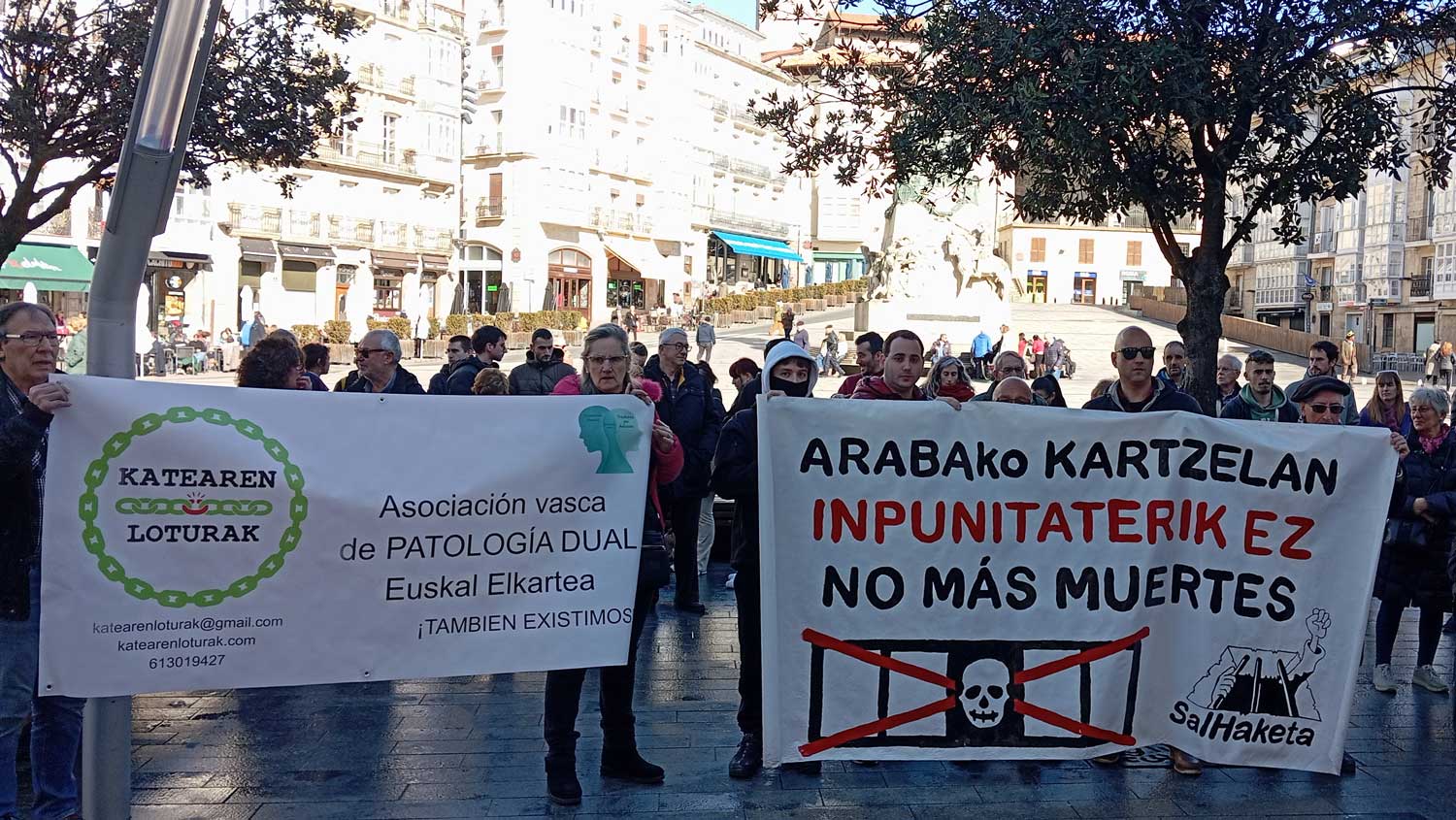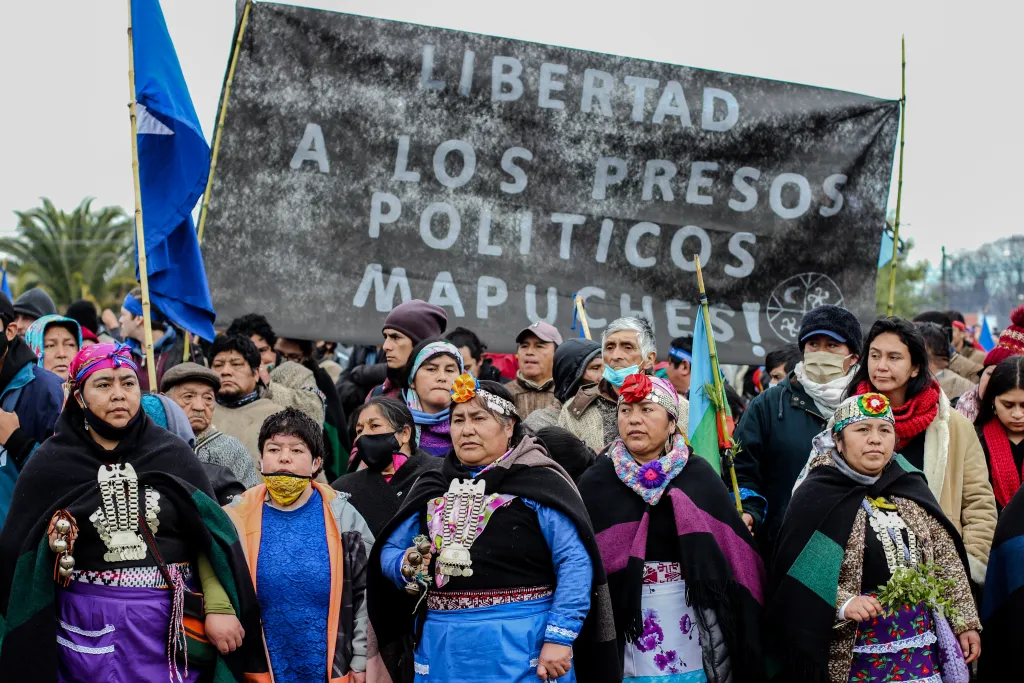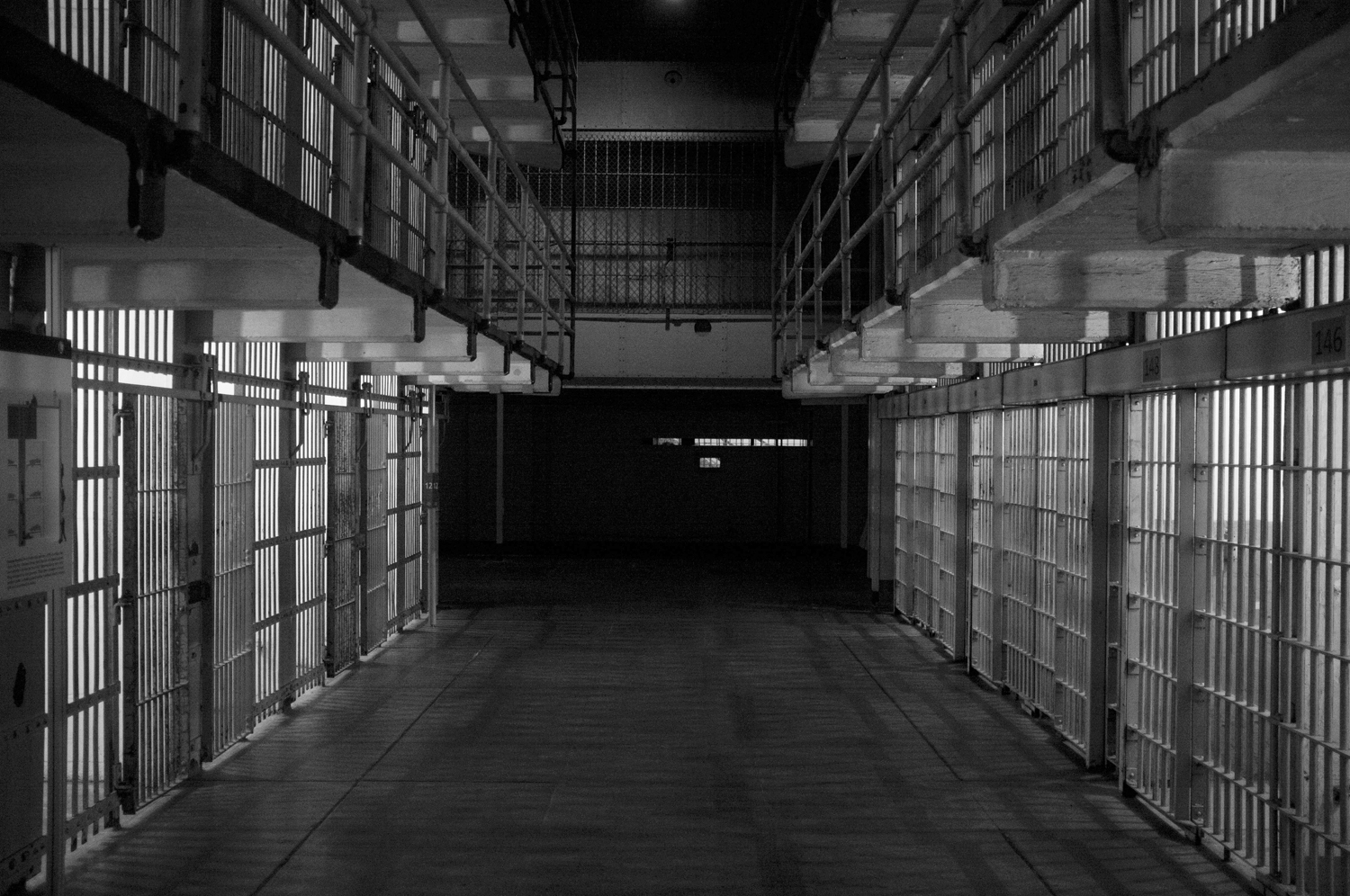COVID-19 in prison: isolates in isolation from the pandemic
- The time of the pandemic has been a very serious situation in many of the areas where prison is one of them. Organized by the SOSpresoak COVID-19 initiative, on 7 April last, three people from the prison world explained in a talk offered at the Katakrak bookstore in Pamplona how the situation affected them. Jokin Unamuno is from the young people of Alsasua and is in third grade in Zaballa prison; Carlos is a former social prisoner imprisoned in Pamplona; and Itsaso has his sister, his partner and the daughter of both in prison.

Jokin Unamuno recalls that on March 10, when officials arrived, they had to close the modules. “You are isolated from society in jail, you are privileged,” one of them told them. "That needs to be heard in jail! “Jokin,” he says. It's pretty significant." They were taken away from them, both from the announcer's office and from the visa office. Of every 10 calls a week, fifteen have been added to them, but that costs EUR 40, and in prison many people do not have that money. Next, they were put on mobile phones so they could call for free, but three phones for 600 people on hold. “I, for example, had permission to go out in the street, but I didn’t go out because I had to be in total isolation by the time I came in.”
The letters they received also had to keep ten days of isolation, so, according to Jokin, it may be a month since the letter was written until it was collected. Then, when they began to leave the street with permission, what happened with the PCR tests was also very significant: “We couldn’t do it outside the weekend and bring the result inside. They compel you to do it in jail, and so clearly tell them that you are in their hands.”
Speaking of health, however, Unamuno talks about the difference between Zaballa and other prisons, “Zaballa is served by Osakidetza and the treatment is more direct”. Carlos and Jokin come together: it is very important that the prison competences be left to the autonomies so that the prisoner has a closer service. Carlos denounces that in the prison in Pamplona there are two doctors and two nurses for about 300 inmates and with that they do not arrive in jail.
“I don’t want to die in jail”
The consequence of the pandemic is clear to these two prisoners: “This situation further isolates the prisoner.” In Carlos' words, jail has meant more depersonalization and also a fear: "The fear of dying inside the jail, and you don't want to die inside. I still want to do a lot of things in life. All right, you did something wrong and you're paying, but we're all human and on that we should have our basic needs covered. I saw her die inside. They said one of them with the overdose, but I don’t think so.”
According to Karlos “we have lived this time with a lot of anxiety and that eats you inside. When you get rid of those few things you have – patio, teacher… – you get shattered.” He explains that a prisoner suffering from cancer was confined for two and a half months: “They took the chemotherapy on Mondays and then had to be isolated until the next visit.”

Maria, Iñigo and Izadi
Itsaso's sister, Mary, has been in prison for 12 years. His partner is also the prisoner Iñigo, who married indoors and who had his daughter Izadi a year and a half ago. Mother and daughter are in Aranjuez's prison, as there is only one maternal module in the entire state. “Family members say that from the age of 12 they have been in, this is the hardest time they are living,” says Itsaso. The three were taken to Picasent's Valencia prison when they became pregnant, but today they are Aranjuez's mother and daughter. The daughter has not seen her father for months.
Itsaso has realised the poor situation experienced by her family members and has stressed that her father and daughter have had little time to be together. “The girl, for example, can’t leave out, or yes, but when she enters, she would have to do an isolation and the mother doesn’t want it.” At first they left an hour a week at three to be together, but in addition Iñigo has seen very little of his daughter. “Counting the minutes that have been there, not a week comes the time that has been with him,” says Itsaso.
Iñigo lost his father during the lockdown, but did not have the chance to be with his family. “They say they have replaced video conferencing visits, yes, Maria and Iñigo have had three or four good video calls since March. I think the video call is for the image cleaning of the jail, they have few phones and the quality is unbeatable. They only have one good thing: so Iñigo has been able to see the grandmother who can't go visit her. Maria and Iñigo have also recently left two five-minute video calls, from module to module (now also Iñigo Aranjuez).” They were anticipated to issue compensatory letters for the interruption of visits: “Being on a special FIES regimen, the cards reach a month or two and are delivered to 6-7 days during the closing period.”
According to Itsaso, if his sister were in Pamplona prison, the situation in Izadi would change a lot, because he could leave prison more often, but if he were in Aranjuez it is impossible. Izadi still has time to be with her mother, but when she turns three she will leave jail. Mary, who has a longer prison sentence than Iñigo, will live with her father, Izadi, who has been arrested. And when you get out of jail, you're going to become a kid with backpacks.
If prison means social isolation, the pandemic has led to greater isolation. “The jail is made to destroy the person and now more,” Jokin says firmly. “Jail is a nonsense,” Carlos adds, “I don’t want anyone to live that. You have to think about other ways of paying for the wrong thing, not paying with your life, whether it's a service to society or something else."
Ahotsa.info offered a chat on streaming and anyone who wants can watch it on their web. The SOSpresoak COVID-19 initiative consists of Sare Herritarra, Etxerat Elkartea, Salhaketa and Altsasuko Gurasoak.
Iragan urteko Frantziako Estatuko presondegien bilanak egoera gordina utzi du agerian. Dominique Simonnot txostenaren arduradunak azpimarratu du kartzelak jendez gainezka direla, beren edukieraren %200eraino batzuetan. Gain populakuntza horri lotzen dizkiete baldintza oker... [+]





















